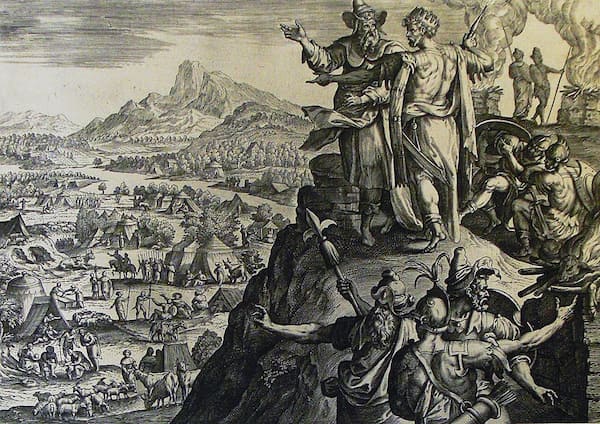כל מי שיש בידו שלשה דברים הללו מתלמידיו של אברהם אבינו
ושלשה דברים אחרים מתלמידיו של בלעם הרשע.
עין טובה, ורוח נמוכה, ונפש שפלה, מתלמידיו של אברהם אבינו.
עין רעה, ורוח גבוהה, ונפש רחבה, מתלמידיו של בלעם הרשע.
משנה מסכת אבות פרק ה, יט
Whomever has those three character traits is a disciple of our forefather Abraham.
[If he has] those other three, he is a disciple of Balaam the wicked.
Good eye, humility, and frugality – a disciple of our forefather Abraham;
Bad eye, arrogance, and an insatiable soul – a disciple of Balaam the wicked.
This Mishna concisely describes the shortcomings of Balaam, a man who is referred to in the Torah as both a prophet and a sorcerer. He is a man who seems to possess tremendous knowledge and who is able to converse with God, albeit in dreams or after certain preparations.
Balaam, whose name is derived from the Hebrew word for “swallow”, is never happy with what he has. Once he is offered a contract by Balak, a contract on the lives of hundreds of thousands of innocent people which can bring great riches, he cannot bring himself to walk away. Even after God repeatedly admonishes him against harming the Israelites he tries to find ways to carry out his plans and collect a handsome fee from Balak.
At the end of the day, though, Balaam returns home empty-handed and shamed. He tried to swallow more than he could digest and from the elevated status of a prophet nothing remains but a sorcerer, pretending to have knowledge and prying on people’s darkest fears. Balaam eventually joins the war against the Israelites and is killed in battle.
As the Torah zooms out of the battlefield, with the image of the slain sorcerer, we understand that even a person with towering intellectual qualities can fall prey to his own greed, jealousy, and arrogance. The Mishna reminds us that in order to avoid Balaam’s pitfalls and to follow the path of our forefathers we should appreciate what we have, respect each other, and understand that we were given our strengths and talents so we can help others.
Shabbat Shalom
Rabbi Haim Ovadia


















